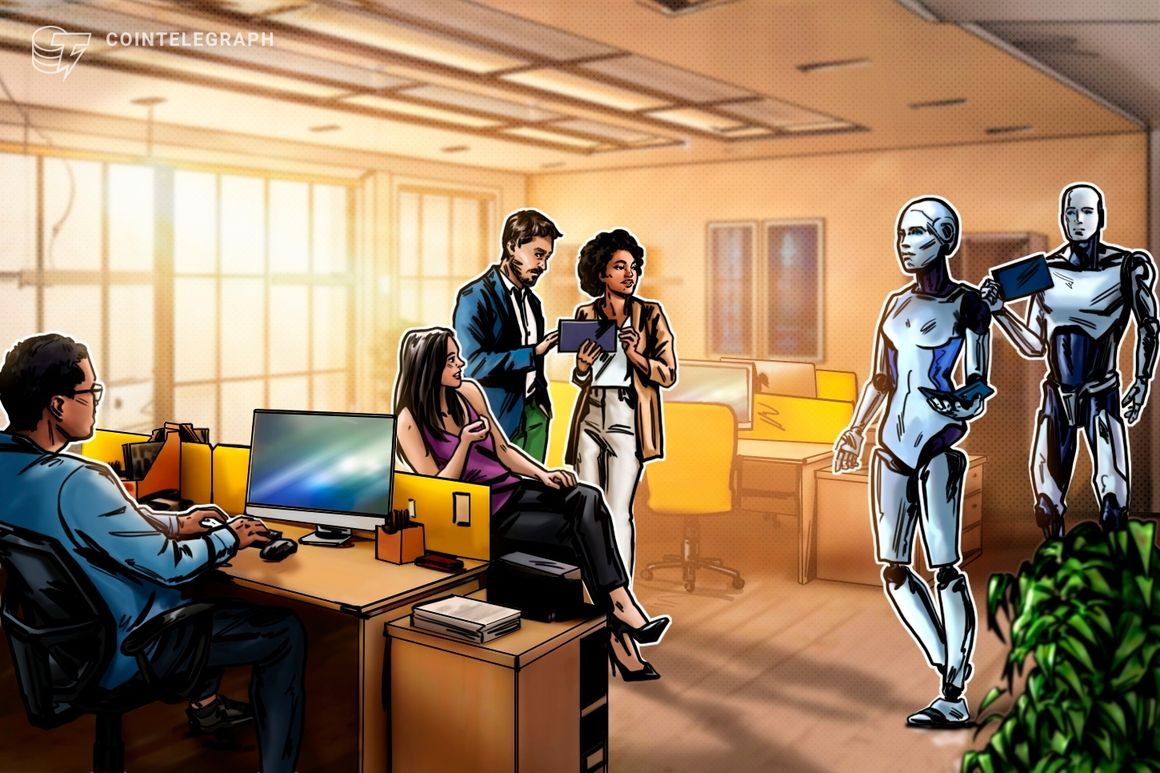As businesses globally grapple with the challenges of talent acquisition, employee retention and optimizing workplace dynamics, the potential of artif
As businesses globally grapple with the challenges of talent acquisition, employee retention and optimizing workplace dynamics, the potential of artificial intelligence (AI) to offer innovative solutions has become a focal point of discussion among human resources (HR) professionals.
For many industry insiders and observers, AI’s integration into HR represents a promising fusion of data-driven efficiency and enhanced decision-making. Organizations increasingly turn to AI-driven tools to streamline processes that were once time-consuming and reliant on human intuition.
For instance, sophisticated AI algorithms can sift through vast pools of job applications, identifying candidates whose profiles best match the job description. This has the potential to speed up the recruitment process and ensure that the shortlisted candidates are a closer fit to the company’s requirements.
Beyond recruitment, AI’s influence in HR manifests in various other domains. Predictive analytics powered by AI enable companies to anticipate potential employee turnover, allowing HR professionals to intervene proactively and address underlying issues. This proactive approach could enhance employee satisfaction, potentially reducing attrition rates.
However, while the benefits of AI in HR could be numerous, its integration is not without challenges. Concerns about data privacy, the potential for algorithmic biases, and the fear of an over-reliance on technology at the expense of human intuition are topics of ongoing debate.
As the HR sector navigates these complexities, the overarching goal remains clear: to harness the power of AI in ways that complement human expertise, ensuring that the human-centric ethos of HR remains undiluted.
The potential of tailored AI in HR
The emerging AI trend is a move away from generic, one-size-fits-all solutions. The modern business environment, characterized by its diversity and unique challenges, demands more bespoke AI solutions tailored to specific needs. This is especially true for the HR sector, where the nuances of company culture, employee dynamics and organizational goals can vary widely.
For instance, a multinational corporation with a diverse workforce spread across various geographies might benefit from an AI system designed to understand and cater to regional employment laws, cultural nuances and local talent pools.
On the other hand, a startup in the tech sector might seek an AI solution that emphasizes skills matching, rapid onboarding and remote work dynamics.
Several companies are stepping up to address this challenge, arguing that AI teams can match or even surpass human efficiency while being more cost-effective. Olympia is one such company.

Catering primarily to startups and solo business owners, it provides businesses with AI teams tailored to their specific needs. These AI teams are designed to learn the intricacies of a company’s operations, from real-time collaboration needs to in-depth data analytics.
Victoria Loskutova, Olympia’s co-founder and CEO, told Cointelegraph: “AI presents a transformative solution for managing human resources. It allows organizations to automate routine tasks, precisely analyze large data sets and provide immediate responses around the clock. In contrast to human HR, AI never tires; it provides consistent service, eliminates unconscious bias from decision-making, and scales effortlessly. The power of AI is in revolutionizing the HR landscape, maximizing efficiency and fairness while freeing human professionals to focus on strategic, complex tasks where their unique capabilities truly shine.”
Recent: How AI analysis can change finance and crypto trading
Yet, the journey toward fully realizing the potential of tailored AI in HR is filled with learning curves. It demands a symbiotic relationship where businesses continuously provide feedback, ensuring the AI remains aligned with their evolving objectives.
Challenges and considerations with AI in HR
The dialogue surrounding AI in HR often circles back to the intrinsic value of human insight. While technology offers tools and solutions, the essence of HR is deeply rooted in understanding, empathy and the ability to perceive nuances beyond mere data.
Speaking to Cointelegraph, Brenda Neckvatal, author of Best Practices in Human Resources: How to Claw Your Way from Want-to-Be to VP, said, “In the age of AI and automation, it’s essential to remember that HR’s core is about human connections. Technology can aid our processes, but it’s the human touch, understanding and empathy that truly drive HR forward. These are elements that no machine can fully replicate.”
Her perspective resonates with many in the HR community who believe that while technology can provide tools, the essence of HR is about building relationships and creating a workplace culture that connects with individuals.
Neckvatal added, “Although the intention of AI is to help reduce the workload and increase efficiency, AI,…
cointelegraph.com

COMMENTS